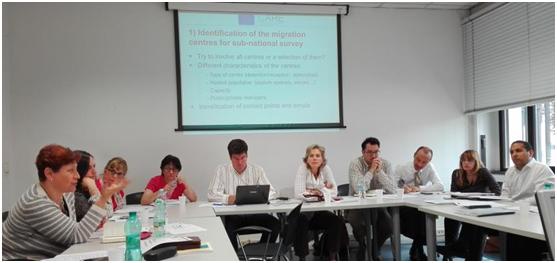Setting the scene together towards strengthening capacity to prevent and detect communicable diseases among the migrant populations in participating countries
Migrant holding centres in Europe are institutional settings that typically host closed/semi-open communities. As in other institutional settings, also migrant holding centres face specific challenges in preventing and controlling communicable disease transmission.
In order to strengthen capacity to prevent and detect communicable diseases among newly arrived migrants hosted within participating countries (Italy, Greece, Malta, Croatia, Slovenia) and Portugal, the CARE project’s Work Package 5 (WP5) is implementing three activities.
Under the guidance of the Italian Institute of Health (ISS) in Rome WP5 is developing and piloting a syndromic surveillance system, conducting a survey to assess the current policy in vaccination offer targeting newly arrived migrants in different European countries and developing and piloting information dispatches targeting front-line health care workers.
The first meeting of WP5 took place in Rome on 16th June 2016 and was attended by 23 people. Participants included representatives of Public Health institutions/Ministries of Health/Universities of Greece, Italy, Croatia, Slovenia, Malta and Portugal as well as delegates from the International Organization for Migration (IOM), the European Centre for Disease Prevention and Control (ECDC) and the Italian National Institute for Migrants and Poverty, CARE Project coordinator.
During this meeting, activities to be performed by WP5 were discussed in depth and in each participating country context, also taking into account predominant migration flows. The main outputs of the meeting were agreements on how to implement the three activities to better benefit each country and how to best reach intended targets, thus setting the scene for future implementation.
Thanks to the CARE project, work has begun within a collaborative framework across Southern Europe where common strategies to strengthen national capacities to prevent and detect communicable diseases among newly arrived migrants will be implemented.

